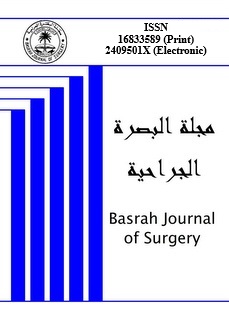Abstract
Endometrial pathologies represent a diagnostic challenge for radiologist and gynecologist due to dynamic changes of the endometrium, wide variability in imaging appearance and overlap between benign and malignant causes of endometrial abnormalities. Although tissue analysis via dilatation and curettage, endometrial biopsy or hysteroscopy is the backbone in the diagnosis, these tests are invasive, not without complications and may be difficult to perform in certain circumstances, hence the need for noninvasive imaging methods to aid in the diagnosis and triaging the patient for subsequent invasive procedures as well as contribution in treatment planning. This study aimed to evaluate the role of diffusion weighted imaging (DWI) with apparent diffusion coefficient (ADC) value measurement in differentiating benign from malignant uterine endometrial lesions. The study included 47 patients with endometrial lesions divided into two groups according to the result of histopathological analysis; the malignant group consisting from 18 cases and the benign group consisting from 29 cases, the latter was further subdivided into: polyp, hyperplasia and other benign entities. Pelvic magnetic resonance imaging with DWI performed for each patient with visual evaluation of signal intensity on diffusion and ADC value measurement. Subsequently mean ADC values for each group were calculated and compared, and validity measures for the optimal cut-off values for differentiating benign from malignant lesions were determined. The mean±standard deviation for ADC value (x10-3mm2/sec) for malignant group was 0.71±0.12, and for benign group was 1.52±0.42, with a significant difference between the two groups (P value <0.01), there was no significant difference in ADC value between the subdivision of benign group. At ADC cut-off value of 0.976x10-3mm2/sec, the sensitivity, specificity, positive predictive value and negative predictive value and accuracy of DWI in detecting endometrial carcinoma were 100%, 89.6%, 85.71%, 100% and 93.62% respectively. In conclusion, DWI with ADC value measurement is a valuable non-invasive diagnostic test, aiding in the differentiation of benign from malignant uterine endometrial cavity lesions. Key words: diffusion weighted imaging, apparent diffusion coefficient map, benign endometrial lesions, malignant endometrial lesions.
